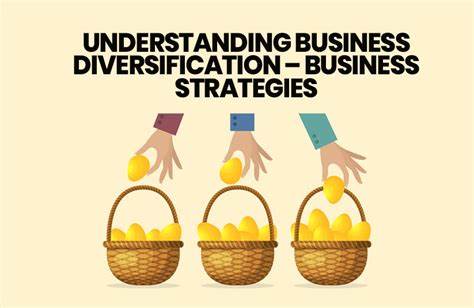Diversification: Expanding Horizons and Mitigating Risks
In the ever-evolving landscape of business, the ability to adapt and innovate is paramount. One of the most effective strategies for sustaining growth and ensuring long-term success is diversification. By introducing new products to new markets, businesses not only expand their horizons but also spread risk across different areas, creating a more resilient and dynamic organization.
Diversification is about envisioning a broader scope for your business. It involves stepping beyond the familiar and venturing into new territories where opportunities abound. This strategy allows businesses to leverage existing strengths while exploring untapped potential, fostering innovation and growth.
Imagine a company that has built a strong reputation in one sector. By diversifying its product line and entering new markets, it can mitigate the risks associated with over-reliance on a single revenue stream. This not only stabilizes income but also opens doors to new customer segments and revenue opportunities. Diversification encourages businesses to stay agile and responsive to market demands, enhancing their competitive edge.
To successfully diversify, businesses must conduct thorough market research to identify emerging trends and unmet needs. Understanding the unique dynamics of new markets is crucial for tailoring products that resonate with local preferences and cultures. Moreover, leveraging existing brand equity can facilitate smoother entry into these markets, building trust and credibility.
Diversification also drives innovation. It challenges teams to think creatively and develop solutions that cater to diverse customer needs. This culture of innovation not only enhances product offerings but also attracts top talent who are excited to be part of a forward-thinking organization.
However, diversification requires strategic planning and execution. It's essential to balance ambition with feasibility, ensuring that new ventures are well-supported by adequate resources and expertise. Collaborating with local partners, investing in robust market analysis, and maintaining a flexible approach can significantly enhance the success of diversification efforts.
In conclusion, diversification is a powerful strategy that empowers businesses to introduce new products to new markets, thereby spreading risk and fostering sustainable growth. It embodies the spirit of exploration and innovation, driving organizations towards greater resilience and success. Embrace diversification, and unlock a future filled with endless possibilities and opportunities.
